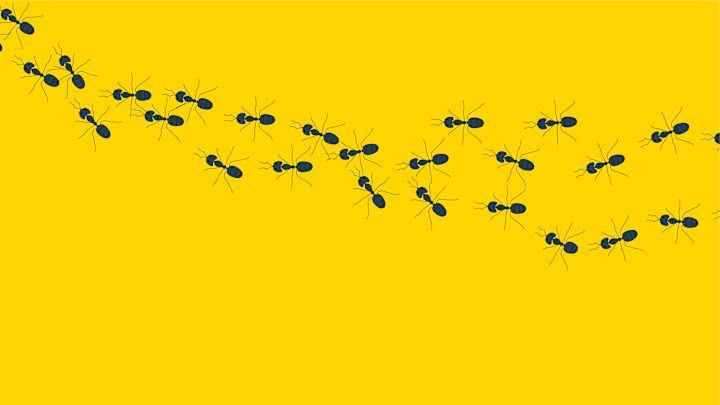We should all consider ourselves lucky that ants haven’t evolved to grow to a more menacing size. As CNN reports, a new study puts Earth’s estimated number of ants at 20 quadrillion—or 20,000 trillion. And that’s on the conservative side.
A group of researchers affiliated with the University of Hong Kong’s School of Biological Sciences arrived at the number by working off data from previous studies that involved ant populations in various ecosystems across all continents. Basically, they searched for studies published between 2014 and 2020 that contained the word Formicidae (the ant family of insects) and then used population size estimates from 489 of them to come up with a rough global total. They published their results in Proceedings of the National Academy of Sciences earlier this week.
It’s not the first time scientists have ballparked the planet’s entire ant population. Biologists Bert Hölldobler and Edward O. Wilson, authors of the 1991 Pulitzer Prize–winner The Ants, believed the number to be somewhere between 1 and 10 quadrillion. Needless to say, this new figure dwarfs that one. But the researchers maintain that Earth could be crawling with even more ants than that, since we’re still somewhat in the dark about how many might be hiding underground, in trees, and in far-flung areas such as the subantarctic.
But any number in the quadrillions is difficult to even fathom. And while a single ant isn’t nearly heavy enough to register on your bathroom scale, 20 quadrillion of them would definitely break it. The study estimated their total biomass of dry carbon to be about 12 megatons—or 12 million tons. For reference, humans’ total dry carbon biomass is believed to tip the scales at around 60 million tons.
The global total of ants isn’t just a fun fact to whip out at parties. As CBS News explains, knowing how many ants there are—and where exactly they live—can help scientists better track how those populations are affected by climate change, invasive species, and other environmental issues.
[h/t CNN]
